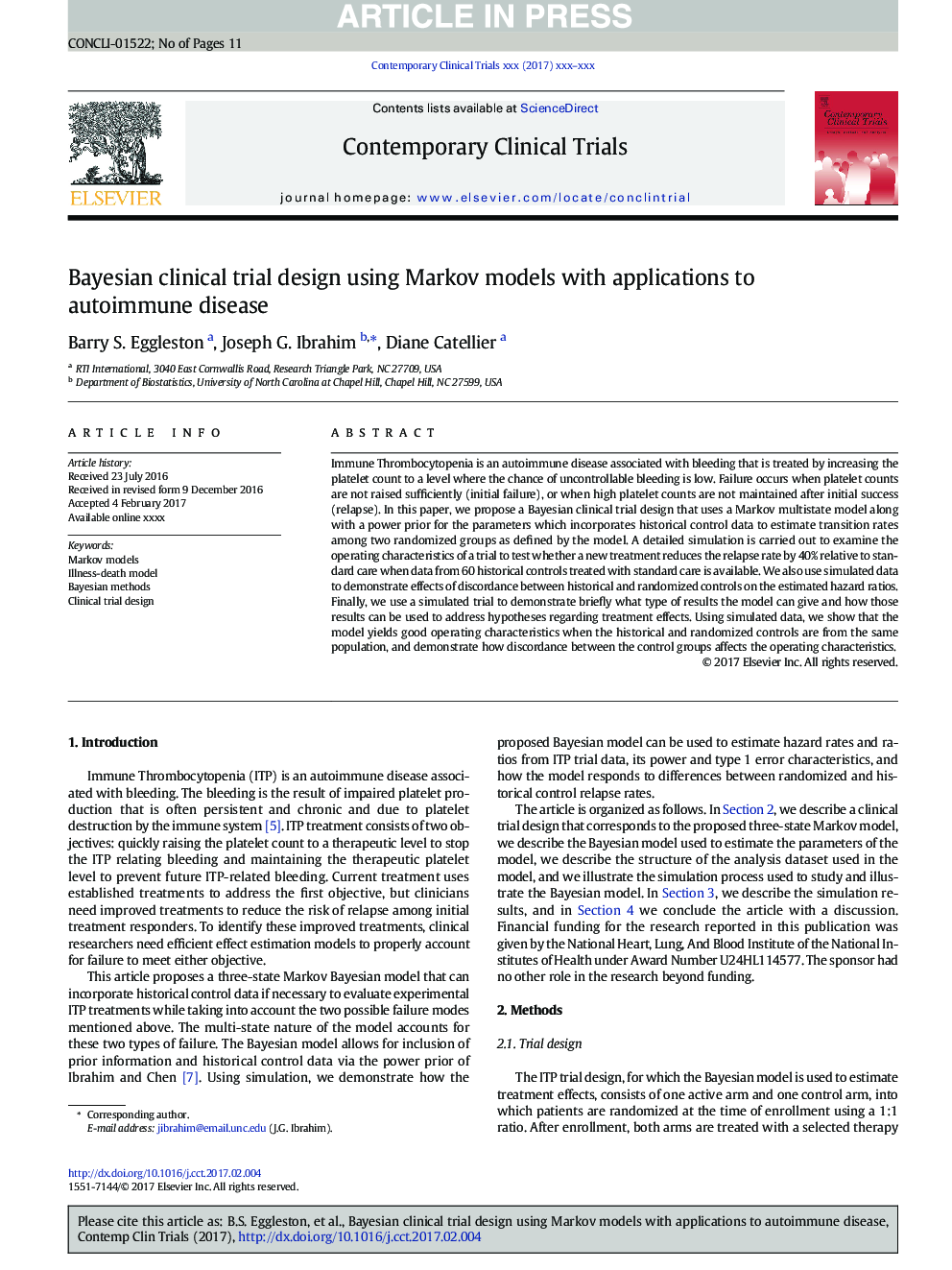| Article ID | Journal | Published Year | Pages | File Type |
|---|---|---|---|---|
| 8757643 | Contemporary Clinical Trials | 2017 | 11 Pages |
Abstract
Immune Thrombocytopenia is an autoimmune disease associated with bleeding that is treated by increasing the platelet count to a level where the chance of uncontrollable bleeding is low. Failure occurs when platelet counts are not raised sufficiently (initial failure), or when high platelet counts are not maintained after initial success (relapse). In this paper, we propose a Bayesian clinical trial design that uses a Markov multistate model along with a power prior for the parameters which incorporates historical control data to estimate transition rates among two randomized groups as defined by the model. A detailed simulation is carried out to examine the operating characteristics of a trial to test whether a new treatment reduces the relapse rate by 40% relative to standard care when data from 60 historical controls treated with standard care is available. We also use simulated data to demonstrate effects of discordance between historical and randomized controls on the estimated hazard ratios. Finally, we use a simulated trial to demonstrate briefly what type of results the model can give and how those results can be used to address hypotheses regarding treatment effects. Using simulated data, we show that the model yields good operating characteristics when the historical and randomized controls are from the same population, and demonstrate how discordance between the control groups affects the operating characteristics.
Related Topics
Health Sciences
Medicine and Dentistry
Medicine and Dentistry (General)
Authors
Barry S. Eggleston, Joseph G. Ibrahim, Diane Catellier,
